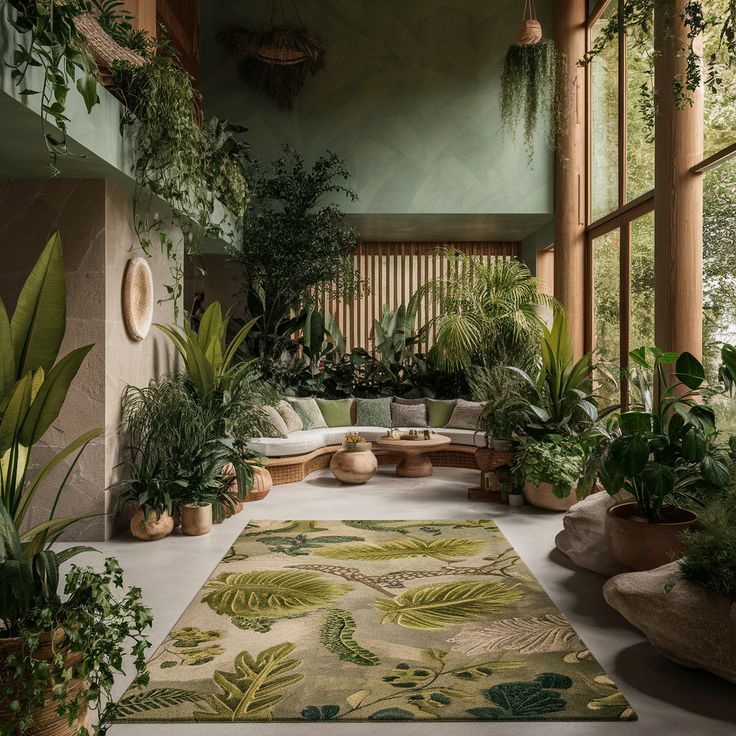1. Add Indoor Plants
Bring life to your home by incorporating indoor plants. From towering fiddle-leaf figs to tiny succulents, greenery adds vibrancy and purifies the air, creating a fresh and inviting space.
2. Install Living Walls
A living wall, or vertical garden, is a stunning way to introduce greenery. It acts as a statement piece while improving air quality and acoustics in your home.
3. Maximize Natural Light
Open up your windows and let the sunlight flood your space. Use light, airy curtains or go curtain-free to enhance the natural connection.
4. Incorporate Natural Materials
Use materials like wood, stone, and bamboo in furniture, flooring, and decor. These elements bring warmth and texture, making your space feel grounded and organic.
5. Use Earthy Color Palettes
Choose colors inspired by nature, such as greens, browns, and soft neutrals. These tones create a soothing ambiance reminiscent of outdoor landscapes.
6. Create an Outdoor-Inspired Workspace
Position your home office near a window with a view of greenery. Add a small indoor plant or natural wood desk accessories to enhance productivity and reduce stress.
7. Incorporate Water Features
Add the calming sound of water with features like a tabletop fountain or a small indoor waterfall. Water elements bring tranquility and elegance to any room.
8. Designate a Zen Garden Area
Transform a corner of your home into a mini Zen garden with pebbles, sand, and a few potted plants. This space serves as a peaceful retreat for relaxation and meditation.
9. Integrate Natural Artwork
Decorate your walls with botanical prints, landscape photography, or handcrafted pieces made from natural materials. These art pieces evoke the beauty of the outdoors.
10. Use Nature-Inspired Textiles
Choose cushions, rugs, and curtains with leaf or floral patterns. Opt for fabrics made from natural fibers like cotton, linen, or wool for an eco-friendly touch.
11. Design an Indoor-Outdoor Connection
Blur the line between indoors and outdoors by installing large glass doors or windows that open to a garden or balcony. Add potted plants to the transition areas for a seamless flow.
12. Add Wood Accents
Incorporate wood accents through furniture, picture frames, or decorative beams. The natural grain and warmth of wood instantly elevate the biophilic appeal of any space.
Tips for Successful Biophilic Design
- Layer Textures: Combine smooth stones, soft moss, and rough wood for a balanced and tactile experience.
- Embrace Imperfection: Use materials in their raw and imperfect forms to capture the essence of nature.
- Prioritize Sustainability: Choose eco-friendly and renewable materials to align your design with environmental values.
FAQs for Biophilic Design
- What is biophilic design?
- Biophilic design focuses on incorporating elements of nature into indoor spaces to enhance well-being and connection to the environment.
- Can I implement biophilic design in a small apartment?
- Yes! Start with small potted plants, nature-inspired artwork, and natural materials to bring the outdoors into your space.
- Is biophilic design expensive?
- Biophilic design can be achieved on any budget. DIY projects and creative reuse of natural materials can help keep costs low.
